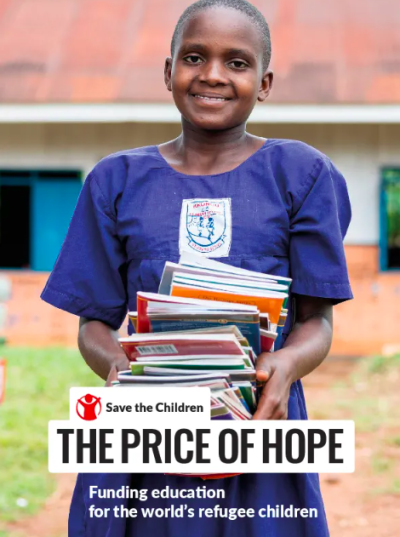تعليم اللاجئين
التعليمأمر بالغ الأهمية للأطفال والشباب اللاجئين. تدعوخطة التنمية المستدامة لعام 2030و الميثاق العالمي بشأن اللاجئين لعام 2018 إلى تمكين جميع الأطفال والشباب النازحين قسريًا (بما في ذلك اللاجئين، وطالبي اللجوء، والنازحين داخليًا) من الوصول إلى التعليم الجامع والعادل والجيد للجميع.
وفي نهاية عام 2023، كان هناك أكثر من 117.3 مليون نازح قسريًا في جميع أنحاء العالم. من بين اللاجئين الذين تُعنى بهم المفوضية والبالغ عددهم 31.6 مليون شخص، هناك 14.8 مليون لاجئ في سن الدراسة. ويعتبر حصول هؤلاء على التعليم محدوداً، حيث لا يتمكن نحو نصفهم من ارتياد المدارس.
ينبغي أن لا يكون التدخل في تعليم اللاجئين قصير الأمد في اوقات الأزمة ومرتبط بالتمويل الذي لا يمكن التنبؤ به والغير مستدام.
من هو اللاجئ؟
وفقا لإتفاقية اللاجئين لعام 1951 فإن اللاجئ هو الشخص الذي يعتريه خوف من التعرض للاضطهاد بسبب عرقه أو دينه أو جنسيته أو انتمائه إلى فئة اجتماعية معينة أو آرائه السياسية، والذي يعيش خارج موطنه الأصلي ولا يستطيع أو لا يريد بسبب ذلك الخوف، أن يمكث في بلده.
الرسائل الرئيسية
- على الصعيد العالمي، 90% من الأطفال مسجلون في التعليم الإبتدائي، و86% في التعليم الثانوي، و43% في التعليم العالي. وفي عام 2022-2023، التحق 65% فحسب من الأطفال اللاجئين في المدارس الإبتدائية، و42% فحسب في المدارس الثانوية، و 7% فحسب في التعليم الثانوي.
- التعليم يقلل من مخاطر التجنيد القسري وعمالة الأطفال والاستغلال الجنسي وزواج الأطفال.
- التعليم يوفر مكانًا آمنًا للأطفال والشباب اللاجئين للتعلم والتواصل بصورة هادفة مع أقرانهم ضمن الروتين المعتاد للفصل الدراسي.
- التعليم يعزز من قدرة المجتمعات المحلية على الصمود ويزود المتعلمين بالمعرفة والمهارات اللازمة لإيجاد حلول طويلة الأمد.
- التعليم يمكِّن من خلال منح اللاجئين المعرفة والمهارات اللازمة ليعيشوا حياة منتجة ومثمرة ومستقلة.
- يساعد التعليم اللاجئين على تحقيق الاكتفاء الذاتي، مما يمكّنهم من التعرف على أنفسهم والعالم من حولهم أثناء سعيهم لإعادة بناء حياتهم ومجتمعاتهم.
- من الأسباب الرئيسية التي تحول دون وصول اللاجئين إلى التعليم هي نقص الوثائق والموارد المالية، ومحدودية توافر المدارس (خاصة المدارس الثانوية)، وكراهية الأجانب.




